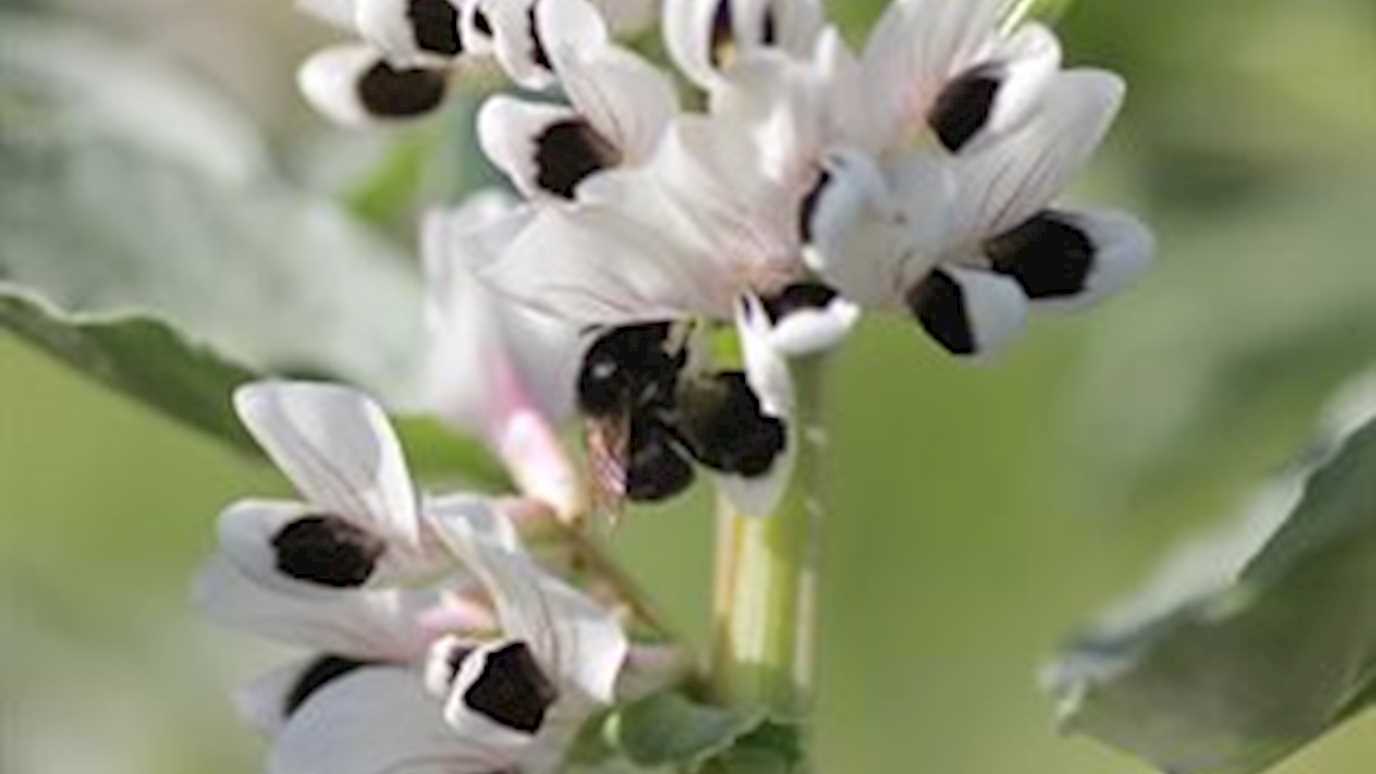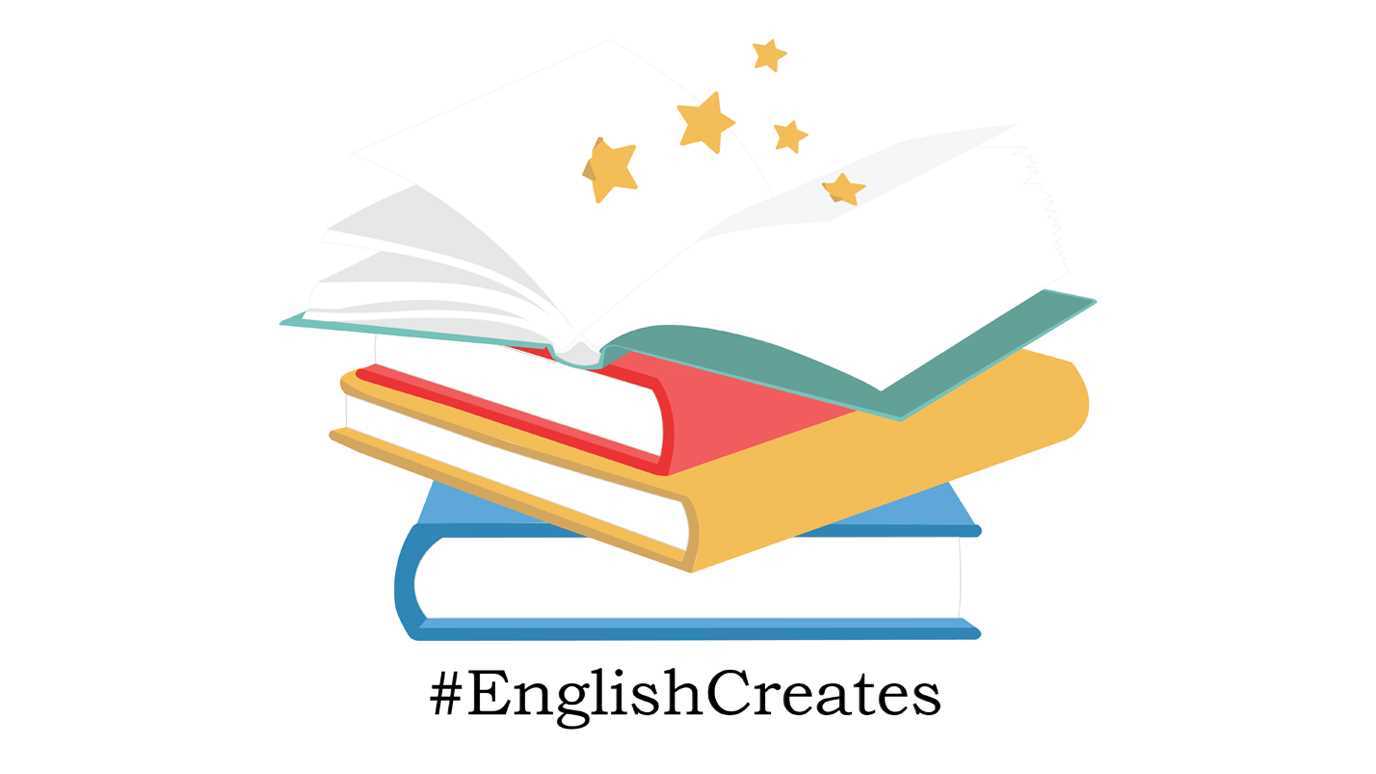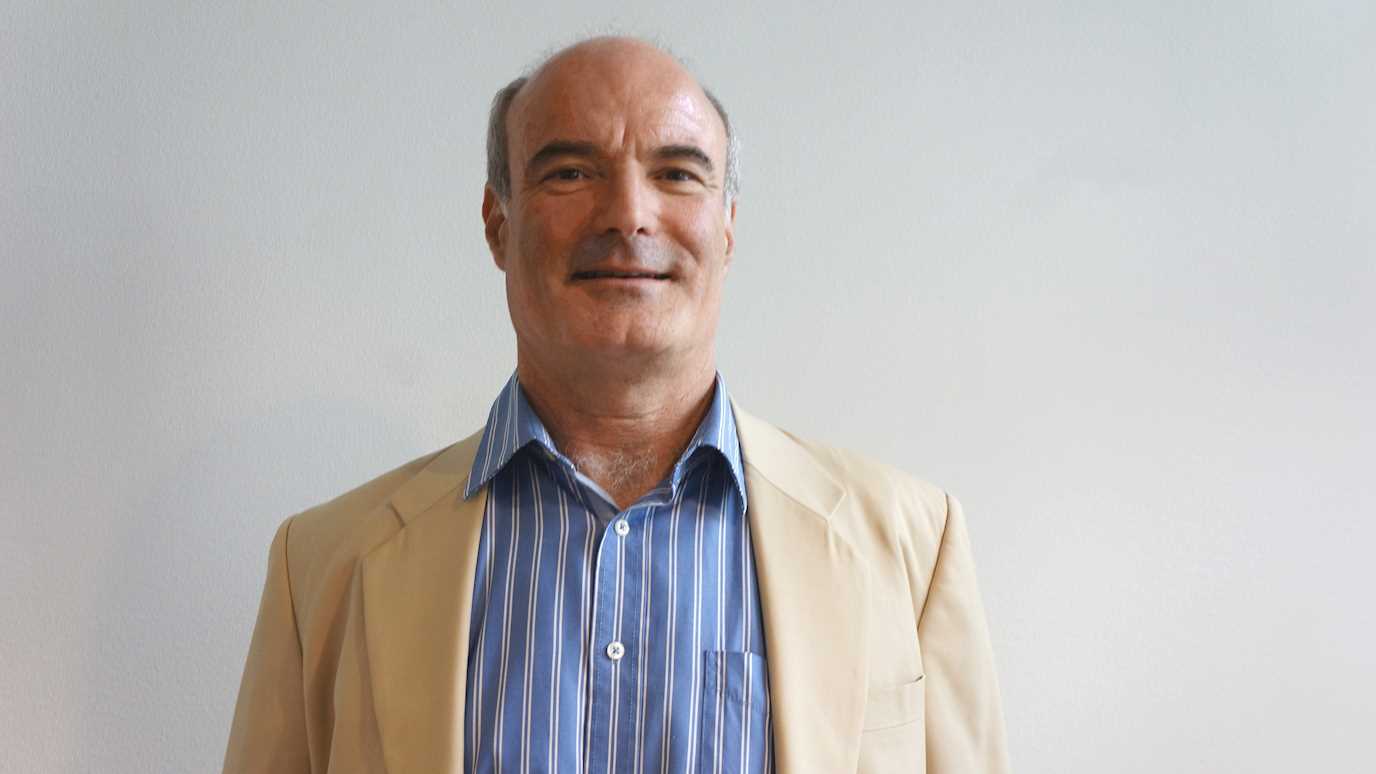Scientists from Royal Holloway, University of London and the University of Cambridge have been taking part in an experiment to optimise broad beans to increase bee visitation rates; and their findings could benefit both the beans and the bees.

Bee visiting broad bean flowers
In research published in Ecology and Evolution, the researchers found that it might be possible to optimise broad bean plants (Vicia faba, also known as field beans) to produce flowers that are better for bees when they visit them, and also improve the quality or quantity of beans that plants produce.
Dr Emily Bailes, lead author of the study from the School of Biological Sciences at Royal Holloway, University of London, said: “We know there are certain things that affect how often bees will want to visit a particular flower. Things like the flower's colour, size and shape have an effect, as does how much pollen and nectar a flower produces. We wanted to do two things: work out how ‘rewarding’ it was for bees to visit broad bean crops, and then see if we could specifically breed broad bean plants to make them attractive as possible for bees. The way to do this is to look at their flowers.”
After studying 208 different broad bean plants, and collecting data from more than 2,000 individual flowers, the researchers found that genetic differences are responsible for causing flowers to produce differing amounts of nectar and pollen – meaning that farmers and scientists may be able to ensure the variations of broad beans they plant, have more bee-appeal than current crops.
“This is good for a few reasons,” explains Dr Bailes. “Firstly, more than 70% of the most important crops grown around the world are reliant on animal pollinators (like bees), meaning they can produce more food when their flowers are visited by these pollinators. We might be able to apply this research to other crops, potentially increasing their yield and making them more bee-friendly.
“Secondly, protecting our bees has become increasingly important. By planting crops that are good food sources for bees, we can potentially help our bee populations living on agricultural land.”
The researchers grew 30 different genetic lines of beans, growing multiple plants of each line. Growing them in a greenhouse, under controlled conditions, they were able to minimize any variations in the plants' environments. This meant that the differences they observed in the flowers were most likely due to genetic differences between the plants – which is something that can inform which variations of beans farmers should grow.
Prof Beverley Glover, senior author of the paper from the University of Cambridge said: “This potential to breed and plant crops that have a higher reward value for the bees could be used to increase the amount of food for bees available in agricultural land. This is beneficial for the environment, the bees, and farmers, especially when used in combination with wildflower strips to provide food at other times of the year.”
In the UK, more than 125,000 tonnes of broad beans are produced every year and 192,000 ha of beans were grown in 2017.
























